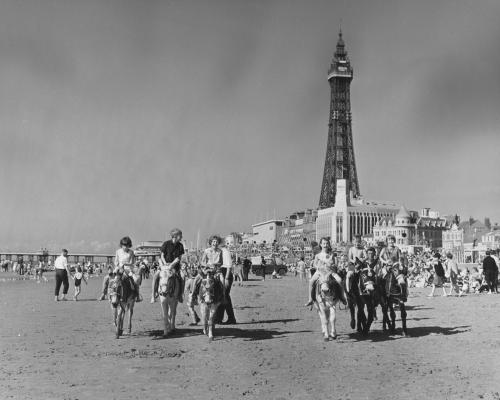
When did people start going on holiday? Valentina Otero, Mexico City
Send new questions to nq@theguardian.com.
Readers reply
Only a privileged few could afford to go on holiday in pre-industrial times (and before the advent of the railways). The earliest known holiday postcard, however, dates back to Roman times. The text, in full, reads: “Gallia est omnis divisa in partes tres. Utinam hic esses.” EddieChorepost
People certainly went on holiday during the Roman empire – actually travelling, not just nipping off to your villa on the coast for the summer, as many rich people did – because we’ve found the souvenirs. There are at least two “A present from Hadrian’s Wall” cups, decorated with names of major forts. SpoilheapSurfer
Well, the first to have a holiday was God – according to Genesis, that is. (Not sure which album, though.) If organised holidays are meant, for “hoi polloi”, not the grand tour aristos, then Thomas Cook arranged everything on 5 July 1841 for a group of temperance campaigners to travel the vast distance between Leicester and Loughborough to attend a rally. Apparently, refreshments were included: cakes, but no ale. For cakes and ale, it was necessary to wait until Cook had changed his mind and started taking the great unwashed to Spain; things really started to take off in the 1960s. bricklayersoption
The grand tour of European sites, as enjoyed by men of the upper classes as part of the general education, was popular between the 17th and 19th centuries. And I suppose there were pilgrimages and trips to spas before that. nina1414
Pilgrimages were possibly the first holidays available to the middling classes. They were ostensibly journeys to venerate saints, but Chaucer gives a good idea of the jollity involved. Souvenir stamped metal badges have been found in the river in York, thrown into the water as an offering to Saint William. DoraMarr
It started with holy days. But there is also the idea of mix and match, for example Día de los Muertos (Day of the Dead) in Mexico. This holiday, celebrated on 1-2 November, blends Aztec traditions of honouring ancestors with the Catholic All Souls’ Day. andya2025
Wealthy Egyptians started the tradition of the Nile cruise maybe 3,000 years ago. Sailing the Nile to see the pharaohs’ tombs, the temples and the natural wonders was a safe and comfortable way to travel. Throughout history, the wealthy and powerful have found novel ways to demonstrate that they don’t need to work. Maybe some bronze age city chieftain decided to conspicuously do nothing for half a moon. PlaceboPidgeon
I don’t know if it counts, but hop-picking season in Kent was used as a working holiday for a lot of poor Londoners from about the mid-1800s to the mid-1900s. They even ran special trains. haveaperspective
My parents moved to Bermondsey in the 1950s when they got married; they were amazed at the mass exodus of families at hop-picking time (they grew up in Devon and only moved due to the lack of well-paid work). Tables, chairs and mattresses were piled on to carts and lorries and taken down to the farms of Kent and East Sussex. Br1ckh1ll
The Bank Holiday Act 1871, introduced by John Lubbock, was what introduced the idea of paid days off. It gave bank workers four paid days off and they were known as “Saint Lubbock’s Days”. Rail companies ran cheap day excursions to seaside towns – cheap enough for industrial workers to afford them without holiday pay. LittleBarnSwallow
In Britain, the Holidays With Pay Act was passed in 1938, so that’s a significant date; you could argue it sparked mass tourism. jno50





